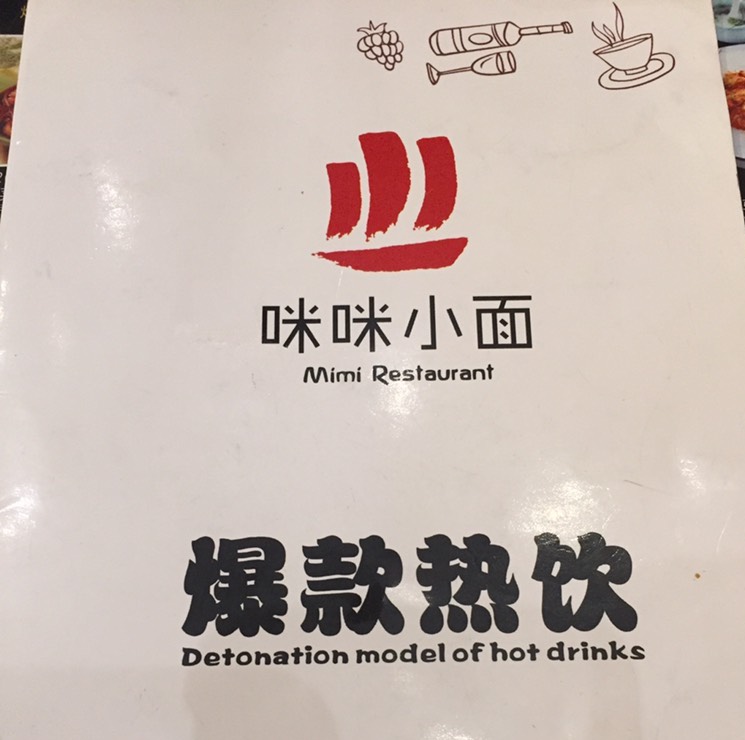Explosive drinks
« previous post | next post »
From Francis Miller in Xi'an, China:
Mīmī 咪咪 is the name of the restaurant, and the main product of Mimi restaurant is xiǎomiàn 小面, literally meaning "small noodles", a kind of noodles whose strips are very thin — why it is called xiǎomiàn "小面" rather than dàmiàn 大面" ("big noodles"). Such "small noodles" restaurants, of which there are many nowadays, are usually selling a spicy Chongqing variety.
Below that, the sign says:
bàokuǎn 爆款 ("bestselling; extremely / explosively popular")
rèyǐn 熱飲 ("hot drinks")
The Chinglish translation comes from one possible word-for-word rendering of the four characters with "of" stuck between them.
“Detonation model” seems to be a quite common way of translating “bàokuǎn 爆款” in mainland China. For example, this website translates “爆款” into “detonation model” for a travel package. This website translates “ shíshí bàokuǎn 实时爆款” into “real-time denotation model” and "INS bàokuǎn INS爆款" into "INS detonation model" for children's clothing. This website even claims that it can help you “create a detonation model” (“dǎzào bàokuǎn 打造爆款”).
“Detonation” comes from “bào 爆” ("explode"), and “model” comes from “kuǎn 款” (this character has many and diverse meanings (see here and here), but probably the best way to translate it in this collocation is “style”), and together it becomes this fixed Chinglish combination “detonation model”
[Thanks to Zeyao Wu, Wanyu Yang, and Qing Liao]

mikegrubb said,
January 29, 2019 @ 12:04 pm
Sales of Mimi's hot drinks must really be blowing up.
S. Norman said,
January 30, 2019 @ 10:12 am
https://boingboing.net/2019/01/30/ariana-grande-got-a-kanji-tatt.html